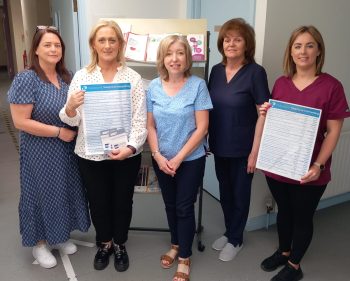2nd October 2024

The population within the Southern Health and Social Care Trust is more ethnically and culturally diverse than ever before.
In order to ensure that our services are accessible and that communication barriers do not get in the way of excellent health and social care, the Trust is launching a ‘Best practice guidance for written communication to address the impact of language barriers’.
This guidance offers advice for overcoming language barriers so that staff and patients/service users (and the families and friends who accompany them) can engage in effective shared decision making and access the most appropriate support.
This guide also focuses on ways to access and effectively work with qualified interpreters.
Robbie McCague, Inequalities and Inclusion Co-ordinator within the Promoting Wellbeing Division, said:
“Figures from the Census (NISRA, 2022) show that one in 15 people or 6.5% of the population are born outside of Ireland or the UK. A needs assessment on accessing services for minority ethnic communities was published in the Trust in 2022. This report, along with similar in other parts of the region and multiple research papers, highlights that language barriers, culture and knowledge of Trust services are core issues for many.
“Trust service providers often don’t have prior knowledge of potential language barriers upon initial referrals or unscheduled first contacts.
“Changing how we do things through this approach ensures services are more accessible, reduces the impact of language barriers and aids provision of interpreters for people using HSC services in a timelier manner to promote better outcomes for all.”
Cathy Lavery, Head of Equality, Diversity and Inclusion, said
“Language barriers diminish the quality of the patient experience and can have a huge impact on communication, trust, decision-making and quality of subsequent care. All of these things can lessen the quality of the patient experience. Language interpretation is a vital tool to help patients and their families understand and convey health care needs and ultimately make informed decisions.
“The development of these resources ensures that the Trust is committed to Equality, Diversity and Inclusion both in the workplace and when delivering services across community and hospital sites.”
This resource was co-produced with multiple stakeholders from both statutory and community/voluntary organisations, individuals and families, and professional interpreters.




